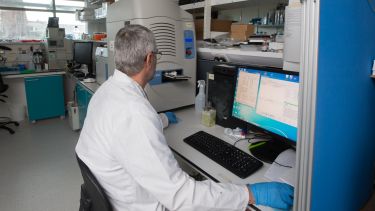SCHARR is joined by two other groups based at the universities of Bristol and Warwick/Birmingham. Their aim is to help assess the effectiveness and value of national screening programmes in the UK. These initiatives aim to detect health conditions early, shifting healthcare from treatment to prevention, while also weighing up potential risks such as overdiagnosis and unnecessary treatment.
Dr Katy Cooper, who is joint lead of the Sheffield ESG team (Sheffield Evidence Network for Screening Synthesis, SENSS), said: “The team brings over 25 years of experience in evidence synthesis and has contributed to screening evaluations for more than 20 conditions. Our portfolio includes key evidence synthesis projects that supported the Newborn Bloodspot Screening Programme and Colorectal Cancer Screening Programme.”
Dr Lena Mandrik, joint lead of SENSS, said: “We are grateful to the NIHR for funding the SCHARR SENSS group and are honoured to continue supporting the UK National Screening Committee by delivering high-quality research to improve life expectancy and quality of life across the UK population.”
The ESGs will ensure that policy decisions are based on the best available evidence, supporting more effective and efficient use of NHS resources, and helping to improve health outcomes across the UK.

